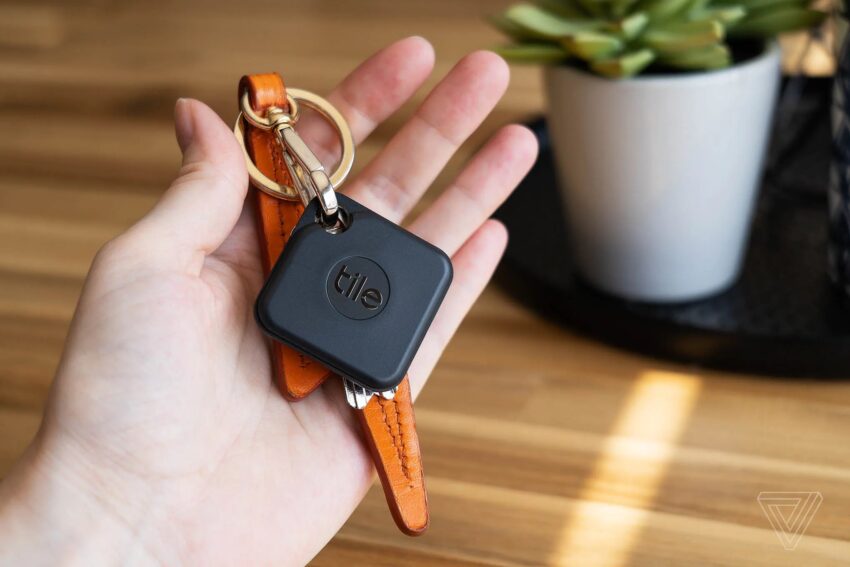
tile s lack of encryption could make Recent research has unveiled a significant security vulnerability in Tile trackers, raising concerns about potential stalking and privacy violations.
tile s lack of encryption could make
Understanding the Vulnerability
Security researchers have identified a critical flaw in Tile’s tracking technology that could allow malicious actors to exploit the system for stalking purposes. According to a report by Wired, the anti-theft mode of Tile trackers, which is designed to make the devices “invisible” on the Tile network, inadvertently undermines measures intended to prevent stalking. This flaw could enable stalkers to track unsuspecting victims using their own Tile tags.
Tile trackers, which are often attached to personal items like keyrings, wallets, or purses, transmit their information to a network of nearby smartphones. These devices relay the tracker’s location, MAC address, and unique ID to Tile’s database, facilitating the recovery of lost items. Similar systems are employed by other brands, including Apple’s AirTags and Samsung’s SmartTags, which utilize a network of devices to pinpoint the location of their respective tags. Google’s Find My Device network also supports third-party trackers from various manufacturers, such as Chipolo, Pebblebee, and Motorola.
Encryption Issues
One of the most alarming aspects of this vulnerability is the lack of encryption in the data transmitted by Tile trackers. Researchers from the Georgia Institute of Technology, including Akshaya Kumar, Anna Raymaker, and Michael Specter, reverse-engineered the Tile app and found that while many companies rotate their tags’ unique IDs and MAC addresses to enhance security, Tile only changes the unique ID. This design choice allows an attacker to link a MAC address to a specific tag, making it easier to track the device over time.
“An attacker only needs to record one message from the device … to fingerprint it for the rest of its lifetime,” Kumar explained in an interview with Wired. This lack of robust security measures raises serious concerns about the potential for misuse, particularly in the context of stalking.
Expert Opinions on the Matter
Eva Galperin, the director of cybersecurity at the Electronic Frontier Foundation (EFF), has been vocal about the risks associated with Bluetooth-enabled trackers for years. She has criticized Tile for its design decisions that compromise user safety. “Tile has, historically, been a bad actor in this space in the sense that they have known about all of these problems with their design choices,” Galperin stated. Her comments highlight a broader concern regarding the accountability of tech companies in safeguarding user privacy.
Galperin emphasized the need for industry-wide standards to mitigate such vulnerabilities. “We have been trying to put together a set of standards that every maker of Bluetooth-enabled trackers should implement, which includes a bunch of best practices,” she said. One of these best practices is the frequent rotation of MAC addresses and the encryption of transmitted information, rather than sending it in plain text.
Tile’s Response
In response to the research findings, Tile issued a statement acknowledging the concerns raised by the researchers. Kristi Collura, a spokesperson for Tile’s parent company, Life360, stated that the company has made “a number of improvements” since being alerted to the issue in November. However, the statement did not provide specific details about these improvements or address the encryption concerns directly.
Collura emphasized the company’s commitment to user privacy and safety, stating, “Using a Tile to track someone’s location without their knowledge is never okay and is against our terms of service.” She also mentioned that Life360 participates in the HackerOne program, which allows ethical hackers and security researchers to responsibly disclose potential issues. This collaboration aims to enhance the security of their products and services.
Implications for Users
The implications of these vulnerabilities are significant for users of Tile trackers and similar devices. The potential for stalking and unauthorized tracking poses a serious threat to personal safety and privacy. Users may not be fully aware of the risks associated with these devices, especially if they believe that the technology is secure.
As Bluetooth-enabled trackers become increasingly popular, the need for robust security measures is more pressing than ever. The EFF’s efforts to establish standards for tracking devices are crucial in ensuring that manufacturers prioritize user safety. Without such standards, users remain vulnerable to exploitation by malicious actors.
Challenges in Detection
Another concerning aspect of Tile’s technology is its “Scan and Secure” feature, which is intended to help users detect unwanted Tile trackers in their vicinity. However, this feature can be easily circumvented by stalkers who activate the anti-theft mode. This mode hides the tracker from the Tile network, making it difficult for victims to detect unauthorized tracking.
While Tile requires users to provide a photo ID and agree to a hefty fine if they misuse the feature, Galperin points out that this does not adequately address the issue. “The stalker has to be caught, and they [Tile] have just provided the technology to make sure that wouldn’t happen,” she remarked. This highlights a significant gap in the effectiveness of the current security measures in place.
Comparative Analysis with Other Brands
When comparing Tile to other tracking devices, it becomes evident that not all manufacturers prioritize security in the same way. For instance, Apple has implemented various security features in its AirTags, including rotating identifiers and alerts for users who may be unknowingly tracked. Samsung’s SmartTags also incorporate security measures to protect users from unwanted tracking.
In contrast, Tile’s approach raises questions about its commitment to user safety. The reliance on a single unique ID for tracking, combined with the lack of encryption, places users at a heightened risk of being targeted by stalkers. This disparity in security practices among tracking device manufacturers underscores the need for consumers to be vigilant and informed about the products they choose to use.
Future Considerations
As the demand for tracking devices continues to grow, it is imperative for manufacturers to prioritize security in their designs. The recent revelations about Tile’s vulnerabilities serve as a wake-up call for the industry as a whole. Companies must recognize their responsibility to protect users from potential harm and take proactive measures to enhance the security of their products.
Moreover, consumers should be encouraged to educate themselves about the risks associated with tracking devices and advocate for better security practices. As technology evolves, so too should the standards and regulations governing the use of such devices. The collaboration between organizations like the EFF and tech companies is essential in establishing a safer environment for users.
Conclusion
The recent findings regarding Tile trackers highlight a critical vulnerability that could have serious implications for user safety and privacy. As security researchers continue to uncover flaws in tracking technology, it is crucial for manufacturers to take immediate action to address these issues. The responsibility lies not only with the companies but also with consumers to remain informed and advocate for better security practices in the rapidly evolving landscape of Bluetooth-enabled devices.
Source: Original report
Was this helpful?
Last Modified: September 30, 2025 at 4:38 am
0 views















